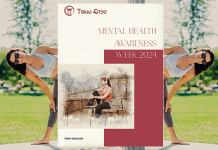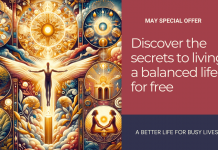The concept of living in the present moment, often referred to as mindfulness, is a central philosophy in various spiritual and philosophical traditions. Simultaneously, holding on to possessions that resonate with memories from the past plays an equally crucial role in shaping our identities. Striking a balance between these two principles can be a powerful path to achieving life-balance, well-being, and life-empowerment. This post explores this intricate relationship and its applications in everyday life.
Living in the Present
1. Embracing Mindfulness
Mindfulness, the practice of being fully present and engaged in the current moment, has become a focal point in mental health discussions. By being in the ‘here and now,’ you can escape the often overwhelming pull of future anxieties and past regrets.
– Health Benefits
Scientific research has shown that mindfulness can improve mental health by reducing anxiety, depression, and stress. It has physical benefits too, enhancing overall well-being by lowering blood pressure and boosting immune responses.
– Enhancing Relationships
Mindfulness fosters empathy and understanding, laying the groundwork for more profound connections with others. By listening and engaging fully with others, relationships become more enriching and satisfying.
2. The Power of Now
Living in the present isn’t merely a philosophical concept; it’s a practical approach to life. It encourages people to appreciate what’s happening around them and to react authentically.
Holding onto Memories of the Past
1. Importance of Memory
Our memories play a significant role in shaping our identity and understanding of the world. Memories connect us to our roots, provide lessons from our history, and infuse our lives with meaning and continuity.
– Possessions as Memory Triggers
Whether it’s a family heirloom, photographs, or even a simple souvenir, objects can hold profound emotional significance. They can serve as tangible reminders of past experiences, keeping them alive and vibrant in our minds.
– Thoughts and Reflections
Reflecting on past experiences isn’t merely dwelling on them; it’s about learning, growing, and finding inspiration. Memories, whether pleasant or painful, can be rich sources of wisdom and understanding.
Striking a Balance: Life-Balance, Well-being, and Life-Empowerment
1. Life-Balance
Finding the right balance between living in the present and cherishing memories of the past is a complex task. The present moment is vital for action, decision-making, and engagement with life, while the past provides context, learning, and emotional depth.
– Harmony in Contrasts
The past and the present are not mutually exclusive. Embracing the present doesn’t mean disregarding the past. It’s about integrating both into a harmonious existence that recognizes the value in each.
– Practical Applications
Mindfulness practices that encourage present moment awareness can coexist with reflective practices that explore past experiences. Journaling, meditation, and mindful engagement with sentimental possessions can create a balanced approach.
2. Well-being
The connection between mindfulness, memory appreciation, and well-being is profound. The ability to balance these aspects can enhance emotional stability, resilience, and contentment.
– Emotional Resilience
Embracing the present while recognizing the value in the past enhances emotional resilience. It allows for a deeper understanding of oneself and fosters a capacity to cope with life’s ups and downs.
– Physical Health
The balance between the present and past can also influence physical health. Mindfulness practices have demonstrated positive effects on physical health, and a balanced emotional state can contribute to overall wellness.
3. Life-Empowerment
Life-empowerment is about taking control of one’s destiny and living authentically. Balancing the present moment’s awareness with a respectful appreciation for the past enables individuals to live empowered lives.
– Autonomy and Control
Empowerment comes from understanding oneself and making conscious choices. This awareness can only be achieved by engaging fully with the present while recognizing the lessons and values inherited from the past.
– Growth and Development
Life-empowerment also involves personal growth and development. Reflection on past experiences, combined with mindfulness of the present, can catalyse personal transformation.
Conclusion
The journey of understanding and embracing the present moment, while holding onto possessions or thoughts that relay memories of the past, is a delicate art. It requires mindfulness, reflection, wisdom, and compassion. Far from being contradictory, these concepts intertwine to form a tapestry that encompasses life-balance, well-being, and life-empowerment.
By consciously weaving the present’s vitality with the richness of our memories, we can create a fulfilling existence that honours the complexity of the human experience. It’s a dynamic process that nurtures growth, fosters connections, and empowers individuals to live with authenticity, purpose, and joy.
Living in this harmonious balance is not just a philosophical aspiration but a practical pathway to a richer, more content, and empowered life. It’s an invitation to explore, reflect, and engage with all facets of existence, creating a life that resonates with meaning and fulfilment.






